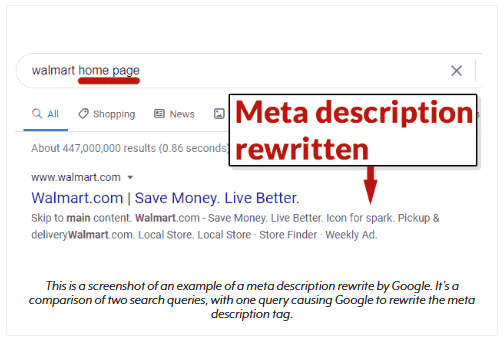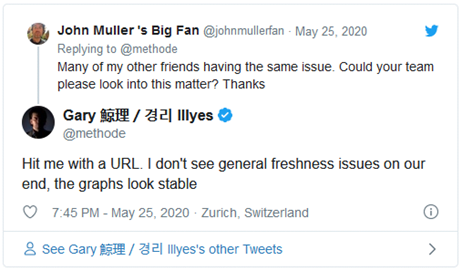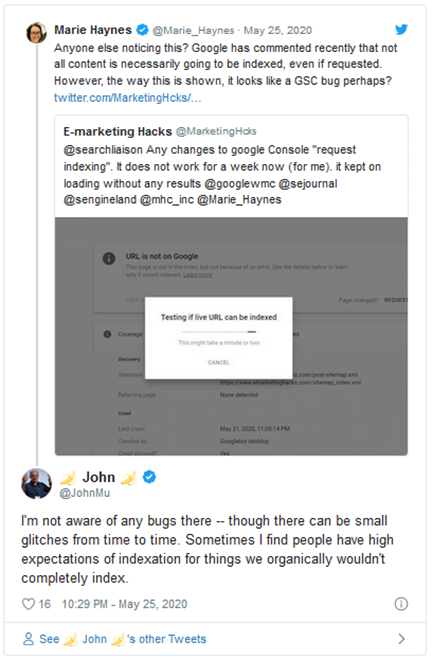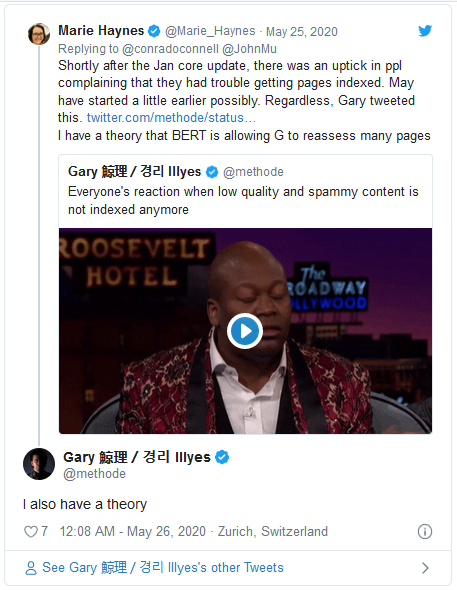3 Reasons Why Google Is Rewriting Meta Descriptions
- 27 May, 2020
- Jason Ferry
- SEO

In a recent Webmaster Central hangout, a publisher asked why Google had rewritten his meta description. John Mueller’s response to the question sheds light on how their algorithm decides when the meta descriptions should be rewritten, clearing up the question for other SEO professionals and webmasters out there.
The meta description used as an example by the publisher was said to have been rewritten on the Google SERPs for branded search queries. He flagged up the utilisation of the modifier “UK” alongside the brand name.
While the question lacked enough detail for Mueller to give a specific response, he talked about the general principles involved when Google might rewrite meta descriptions.
Mueller said, “We have an issue with the meta description that is being displayed for hour home page.
So, even though we have a meta description that is being implemented on that particular page, somehow in Google when our website appears, the meta description is completely different.
And in some cases, if we search for our company name plus the word ‘UK’, the meta description makes no sense whatsoever. It’s just a bunch of words put together from various parts of the page.
I know sometimes Google goes hunting for various things on the page if it cannot find relevant content for that particular region.
So I guess my question is, because we have a lot of traffic that is coming up from branded searches… it is important for us to have the correct meta description showing up.
What do we do to rectify the situation”?
Reason Why Google Rewrites Meta Descriptions
Mueller confirmed that he couldn’t really say what’s happening without seeing the publisher’s particular search results.
Mueller stated, “It’s hard to say without looking at the search results. So that’s kind of the one part”.
But then he explained what causes the meta description rewrites, and said that having a meta keyword is the first move:
“Usually what happens is we need to have the description meta tag on the page. That’s kind of the first step.
It sounds like you already have that set up”.
Reason 1: Meta Description is Bad
Having established that, here are the reasons why Google might rewrite the meta description tag:
“The other thing there is that we need to be able to, I guess, trust the meta description on the page so that it looks kind of reasonable.
In particular, sometimes when we see a bunch of keywords that are just kind of collected in the meta description.
Then that’s something that our systems might look at and say well, this doesn’t look that useful for users.
So they’ll try to rewrite something else”.
Here, Mueller clarifies that the meta description might be rewritten if it’s focused more on stuffing it with keywords and not actually a description of what the page is about.
The most important factor is that a meta description that “doesn’t look that useful for users” will tend to be rewritten.
Reason 2: Query and Content Matching
In the context of the publisher’s question, the term “less useful” is relevant to the search query. In his case, he said that brand queries with the “UK” modifier were being rewritten.
So it appears that the “UK” search query modifier could be one reason, in his case, for the meta description rewrites.
Google might be rewriting the meta because the text on the page itself does not actually contain UK-related content.
So Google is attempting to reflect the content of the page – which is not specific to the modifiers used - by opting to change the meta descriptions (and incidentally, the title tags too).
Example:
Here, you can see the search queries “Walmart” and “Walmart Home Page”, and how the latter has a rewritten meta description.

This shows a relevant meta description for the query “Walmart Home Page”. And while the term “Home Page” doesn’t exist on the page, it still exists on the yellow star icon with an alt tag “Icon for spark”. And if you go to the Walmart and spark icon logo, the term “Walmart Homepage” appears in an alt tag tooltip.
Here, Google’s algorithm has rewritten the meta description to make it more relevant to the query, “Walmart Home Page”. However, by looking at the sample above, the algorithm is not really doing it as well as it might.
Mueller further goes on to mention “And most of the time when it tries to rewrite something, it’s based on the content on the page itself”.
From the example above, Google’s algorithm has rewritten the meta descriptions because the words Homepage or Home Page don’t exist in the Walmart home page. But they do appear in the home page button’s alt tag.
What Google did was to use the alt tag text related with the Walmart Home Button, but chose the inappropriate alt tag, and displayed the words, “Icon for spark” in the modified meta description.
Reason 3: Search Queries
Another reason for the meta description being rewritten is relevant to the search query used. That will depend on the query itself, as well as the web page’s content.
Mueller said:
“And the other thing… you noticed, is the description can vary depending on the query that is used.
So the first thing that I would do is just take the normal branded query that you use and double check that the description that you provide in the meta description is actually pretty useful and not too… spammy or overdone.
And then go from there, essentially, to figure out… is this something where Google always gets it wrong?
Or is it something where sometimes Google’s algorithms pick up something else on the page and get it wrong?”
Meta Description Rewrites Explained
While some might think that the reason for Google’s meta description rewrites is completely arbitrary, it’s really not. As explained by Mueller and this article, there are specific reasons why Google’s algorithms might modify meta descriptions. As noted, these are generally based on the search query used and the content of the web page it discovers.
How Indexing Issues Is Related To The May 2020 Core Update
Over the past couple of weeks, numbers of complaints about indexing have been huge. Google is having to respond that there are really no issues as to how deep or fast it’s indexing websites. People who use Google seem to be saying that indexing those pages might not be worth the search engine’s time.
John Mueller of Google recently said that a significant proportion of indexing issues are related to quality problems, and are where Google decides it’s not in its interest to use their resources to index a whole website or even parts of it.
Here are some of the tweets that surfaced around the time of the May 2020 Core Update:


Google’s Gary Illyes tweeted in response to issues like this following the January 2020 core update:

From this, we can infer that Google will waste less of its time on indexing websites that seem to be of lesser quality, ones that look like they were hit by the core update. Here’s an example of where a website took a hit from the May 2020 update. This shows how the indexed pages have dropped in the rankings by about 35%.

This means that if a website has quality problems which are consistent with Google core updates, then a drop in the rankings of your indexed pages is only to be expected.
Stories in this SEO UK blog were originally posted on https://www.searchenginejournal.com/why-google-rewrites-meta-descriptions/370452/ and https://www.seroundtable.com/google-indexing-drop-core-update-29506.html.
Get the best white hat SEO services today and develop a strong online presence for your business website. Check out how our services can help by going to Position1SEO.















